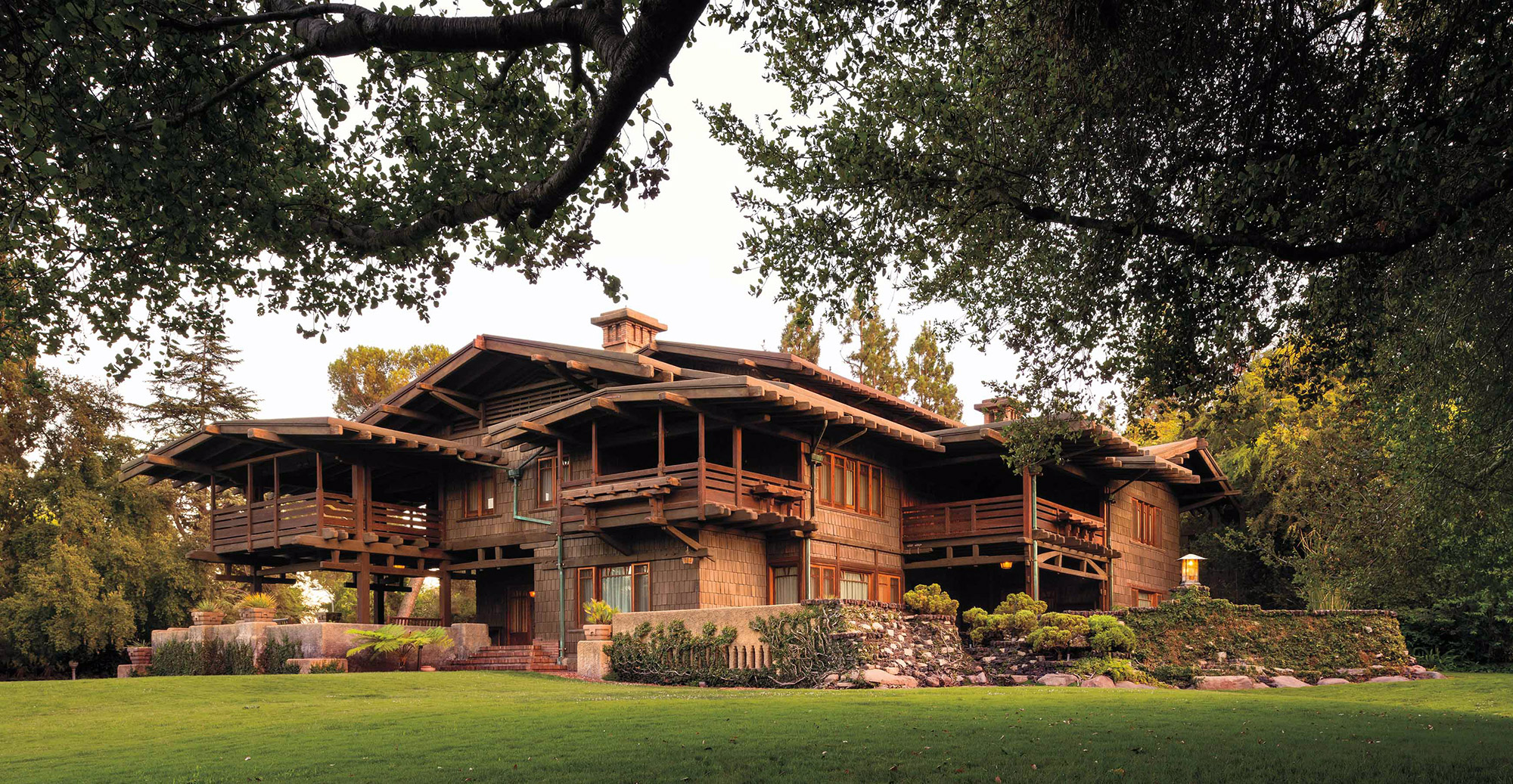Which of the following best describes Shaker design philosophy?
A. Ornate and decorative, showing wealth
B. Functional, simple, and handcrafted
C. Eclectic, drawing from multiple cultures
D. Mass-produced and industrialized
B. Functional, simple, and handcrafted
The Aesthetic Movement’s motto was…
A) “Less is More”
B) “Art for Art’s Sake”
C) “Form Follows Function”
D) “Truth to Material
B. Art for Art's Sake
Which feature was commonly found in Arts and Crafts houses?
A. Symmetrical classical façades
B. Asymmetrical layouts and vernacular influences
C. Reinforced concrete curtain walls
D. Glass skyscraper structures
B. Asymmetrical layouts and vernacular influences
Which figure promoted the Craftsman philosophy through his magazine?
A) William Morris
B) Frank Lloyd Wright
C) Gustav Stickley
D) C.F.A. Voysey
C) Gustav Stickley
Shaker dwellings were known for having:
A. One grand staircase in the center of the house
B. Separate staircases and doors for men and women
C. Hidden underground passages for religious rituals
D. Stained glass windows with elaborate Gothic details
B. Separate staircases and doors for men and women
Which of the following was a common motif in Aesthetic design?
A) Sunflowers and peacock feathers
B) Zig-zag geometric forms
C) Streamlined curves
D) Stylized lightning bolts
A) Sunflowers and peacock feathers
Which material choice reflects Arts and Crafts architectural values?
A. Exotic imported stone
B. Local stone, brick, and wood
C. Cast iron and steel frameworks
D. Polished marble from abroad
B. Local stone, brick, and wood
This type of house became the Hallmark of the American Craftsman movement. What is it called?
A. Villa
B. Cottage
C. Bungalow
D. Manor

C. Bungalow
Which innovation is credited to the Shakers?
A. The revolving chair
B. The circular saw
C. The sewing machine
D. The printing press
B. The circular saw
What is the name of James McNeill Whistler’s iconic room (1876–77)?

A) The Green Dining Room
B) The Red House
C) The Peacock Room
D) The Crystal Palace
C. Peacock Room
What feature did Arts and Crafts interiors often center around?
A. Ornamental chandeliers
B. A central fireplace or inglenook
C. A domed ceiling with murals
D. A grand staircase with iron balustrades
B. A central fireplace or inglenook
Craftsman houses emphasized beauty through...
a. Applied ornament
b. Imported luxury materials
c. Honesty of materials and exposed structure
d. Brightly painted surface
C. Honest use of materials and exposed structure
What distinctive feature was found in Shaker dwelling house exterior?
A. Cupolas or belfries
B. Gothic tracery windows
C. Flying buttresses
D. Domed ceilings 
A. Cupolas or belfries
Which statement best distinguishes the Aesthetic Movement from the Arts and Crafts Movement?
A) Aesthetic valued craftsmanship above all.
B) Aesthetic rejected the machine.
C) Aesthetic promoted beauty and taste without moralizing
D) Aesthetic formed guilds for design reform.
C) Aesthetic promoted beauty and taste without moralizing
Which design element best illustrates the Arts and Crafts principle of “honesty of materials”?
A. Painted faux marble walls
B. Exposed wood grain and natural finishes
C. Gold-leaf wallpaper
D. Imitation plaster moldings
B. Exposed wood grain and natural finishes
How were many Craftsman-style houses made available to middle-class families in the US?
A. Imported prefabricated from England
B. Built only be Greene and Greene
C. Sold as mail-order kits through catalogs
D. Gesigned exclusively by Frank Lloyd Wright
C. Sold as mail-order kits through catalogs
Which architectural style most influenced Shaker buildings?
A. Baroque Revival
B. Gothic Revival
C. Georgian and Federal, with some Greek Revival
D. Romanesque Revival
C. Georgian and Federal, with some Greek Revival
What feature of this Craftsman furniture piece reflects the movement's philosophy?
a. hidden joinery and elaborate carving
b. exposed structure and rectilinear simplicity
c. use of imported luxury woods
d. painted decoration and floral motif 
b. exposed structure and rectilinear simplicity
In Arts and Crafts architecture, windows were often designed as:
A. Large uninterrupted glass walls
B. Groups or bands of casement or mullioned windows
C. Circular rose windows with stained glass
D. Narrow lancet Gothic-style windows
B. Groups or bands of casement or mullioned windows
Which design motif, often associated with the Aesthetic Movement, symbolizes exotic refinement and beauty?
A. Peacock feathers
B. Acorns
C. Lightning bolts
D. Shells 
A. Peacock feathers